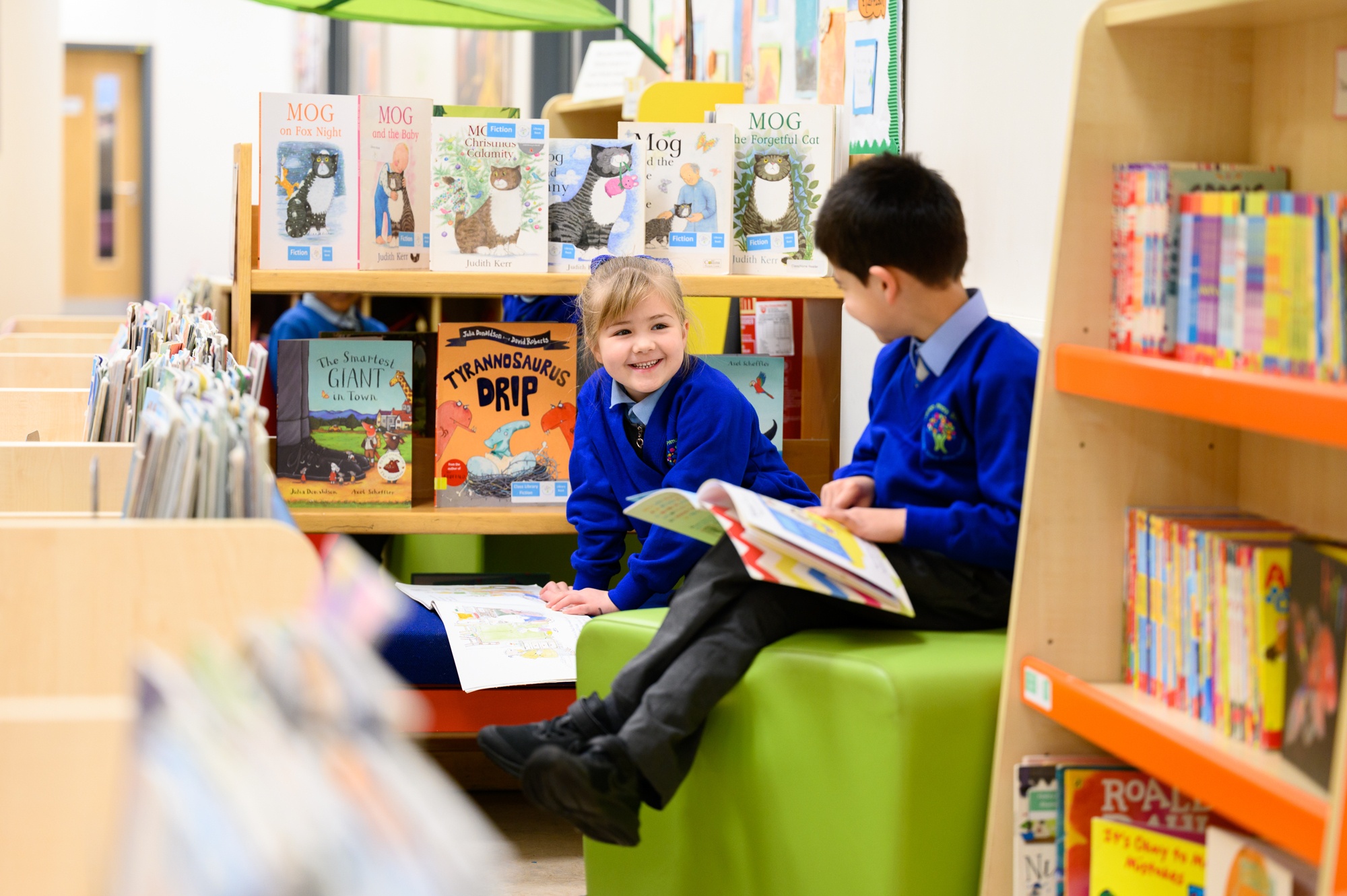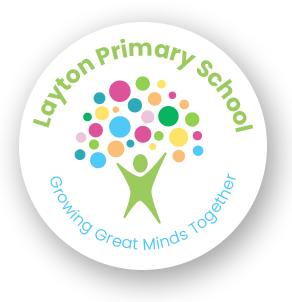Early Reading

At Layton we value reading as an important lifelong skill and recognise how important the Foundation Stage year is to lay the foundational knowledge of word reading (learning to read) and comprehension (reading to learn) within a language rich environment.
From the moment children start in Foundation Stage, priority is given to the development of early reading skills. At Layton we believe that developing early reading, early writing and spoken language is vital for pupils’ success in laying the foundations for the National Curriculum from Year 1.
Early Reading Skills
Early reading at Layton aims to foster a love for books and reading for pleasure, alongside the acquisition of the key early reading skills:
- Phonics - Children access a daily phonics lessons at their stage of development to understand the relationship between letters (graphemes) and sounds (phonemes), helping children decode words.
- Phonemic awareness - Children develop understanding of rhyming words and recognise and manipulate sounds in words such as identifying the initial sound in ‘cat’
- Cued Articulation - At Layton Primary School, as children learn individual sounds, they learn an associated action that supports their understanding of how the sound is made.
- Vocabulary - Children build a strong foundation of vocabulary, both spoken and written through purposefully chosen books on a variety of themes. New vocabulary that the class teacher will explicitly model and teach, is planned for weekly.
- Comprehension - Children discuss books and raise their own questions about the stories, rhymes and poems they read in class. Children need both good language comprehension and good word reading to become good readers.
- Fluency - Children are exposed to adults modelling of reading such that they learn to read smoothly and accurately, at a comfortable pace. Beginner readers, however, whatever their age, do not have a choice about speed because they are still engaged in decoding the words on the page.
- Print awareness - Children learn the conventions of print, such as reading from left to right and recognising that print carries meaning.
- Storytelling and shared reading - Children engage in discussions about books and pictures, encouraging them to predict what might happen next. Children have fun learning a range of poems, rhymes and repeated refrains to join in with! Children can then use these ideas when they role play within the continuous provision.
- Variety of text types - Children develop their love of reading through exposure to a wide range of text types including fiction, non-fiction, poetry, rhyme and song. Books are chosen based on themes and link to foundational knowledge of subjects like Science, Geography and History.
- Continuous Provision - Children access role play within the continuous provision so that they can practise new vocabulary learnt with their peer group and teachers (see below for back and forth interactions).
- Non-verbal Communication - As soon as children start at Layton Primary School, they are immersed in the skills of Makaton to create an inclusive environment where all forms of communication are celebrated.
- Extra Curricular Opportunities - Children are invited to a weekly ‘Breakfast Book Club’ where they can come along to enjoy a book with their friends and parents/carers.
- Home - School Communication - At Layton we recognise that parents play a vital role by engaging in frequent reading aloud, interactive games, and encouraging a wide variety of literacy activities. Parents/carers can make a record of reading with their child using the Boom Reader App. In addition to this, for the core text each week, a QR code is sent to parents/carers so that they can access the core texts being read at school with some questions that they can ask to check their child’s understanding.
Where children are at risk of falling behind, children are read to every day with an adult and every child reads with their teacher at least once per week. Precision teaching is used for children that require support learning sounds or blending sounds.
Developing Dialogue
At Layton, a language rich environment within which adults talk with children throughout the day, is prioritised for the acquisition of early reading and writing skills.
As a dialogic teaching school. We believe that the more children take part in conversations and discussion, the more they will understand and the more vocabulary and ideas they will have to draw on when they can write, and talk about. In turn, this will enable them to think critically and use and apply the knowledge they learn.
As soon as the children start in Foundation, children are taught to work with talk partners. This might include getting ready for responding together to the adult, discussing a question, problem or idea and agree on their joint response or they might be asked to discuss their partner’s thoughts. This creates an environment of trust and children learn to not opt out as they will be expected to contribute. Alongside this, children develop the skills of ‘Agree, Build, Challenge’ (ABC) whereby they learn to explain and justify why they ‘agree’, want to ‘build-on’ a peer’s idea or ‘challenge’ what a peer has said during the class discussion.
Speech Language and Communication Needs
Speech and language therapists based in school 3.5 days per week and a Speech and Language Learning Support Assistant (LSA) based in school full time ensures early intervention such that children can access Phonics even if they require support with the articulation of certain sounds. Every child in Foundation Stage is assessed using the WellComm speech and language toolkit, and where necessary, targets for intervention are implemented.
Back and Forth Interactions with Adults
Developing early reading skills also requires quality back and forth interactions between all adults and children within the setting. The back and forth interactions ensure that the adults:
- Think out loud, model new language for children
- Pay close attention to what the children say
- Rephrase and extend what the children say
- Validate the children’s attempts at use of new vocabulary and grammar by rephrasing what children say if necessary
- Ask closed and open questions
- Answer the children’s questions
- Explain why things happen
- Make deliberate connections between current and past events (‘Do you remember when…?’)
- Provide models of accurate grammar
- Extend children’s vocabulary and explaining new words
- Connect one idea or action to another
- Help children to articulate ideas in well-formed sentences.
(The Reading Framework, July 2023)
Listening
Listening is a key skill for development of early reading. Throughout their time in Foundation Stage, children are taught when to listen and to know what good listening looks like. Over the year, teachers develop listening skills over time, deliberately building up the time that the children listen with attention and concentration.
For more information on learning to read and reading to learn as children progress through school, refer to to ‘Reading’ curriculum within the ‘Curriculum Subjects’.
